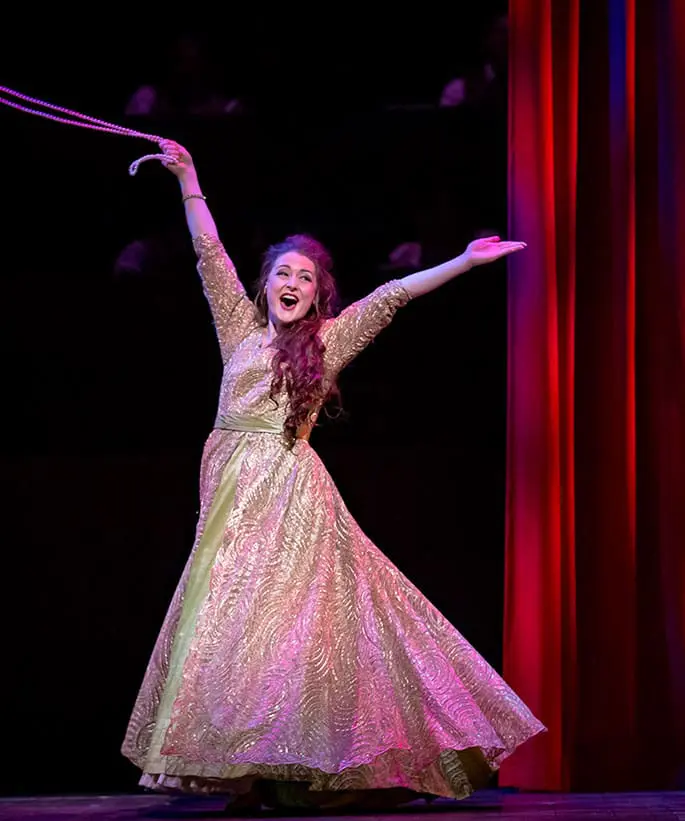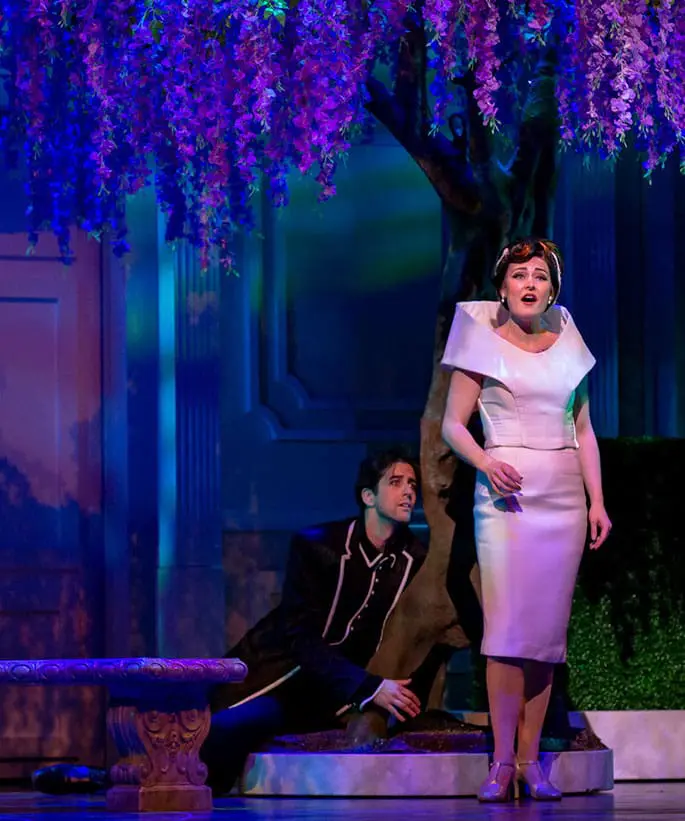This is the continuation of a new series of Q&As with the artists of Canada’s opera scene. After our “Quarantine Questions” from the spring/summer of 2020, we’re checking in once again with these artists as they share new perspectives on mid-pandemic opera. Next up: soprano Caitlin Wood:
After nearly a year away from a “normal” performance calendar, what perspective have you gained about the worlds of opera and classical music? What is its importance to you, and how does this compare to this time last year?
“As the months drag on with theatres closed and cancellations have become the norm, I have seen more and more artists pivoting away from our industry. This was happening even before COVID but the pandemic seems to have only hastened this trend. Singers seem to be leaving because for even the most passionate artists, the financial uncertainty and instability of the industry can become overwhelming. Our industry is fantastic at supporting and uplifting young artists and of course the opera superstars, but what about those that fall somewhere in the middle? Even with supplementary income from side hustles and other jobs, it seems like some pretty fantastic talent is being priced out of our industry. What happens to the Canadian opera scene when there is this kind of ongoing bifurcation between those that can afford to sing, and those that cannot?
“Not everything is doom and gloom, though! I have also seen some really encouraging responses in the pandemic which give me confidence in the strength of the opera community. For example, partial or full payments for cancelled projects (regardless of force majeure), digital projects with fair compensation, governmental aid, and constructive conversations aiming to make this industry more inclusive, sustainable, and equitable for all those involved. So while opera is a challenging industry, the statement ‘We are all in this together’ also seems to ring true for many companies, organizations, and colleagues.”
What do you miss the most about giving and hearing live performances?
“Ugh, bring out the Kleenex, here comes the waterworks. Having to make music in isolation has really made me realize how much I appreciate the magic of making music and making stories come alive in real time with others. I deeply miss the collaboration of working with other artists. Being part of a team whose whole purpose is to make an audience feel something deeper than the everyday, to take them away from the troubles of their lives, and experience another world. I miss riding that wave of energy you feel while singing with colleagues over a soaring orchestra. I miss being in the audience and feeling the thrill of someone astounding me with their virtuosity. More than anything I miss the people and I miss the music.”
“During these difficult periods I try to never lose sight of the importance of singing every day.”
What activities or pursuits have you taken up since last March? Do you have any new interests or passions you can tell us about?
“My partner and I bought a fish tank and have filled it with lot of colourful plants and fish. Having some other living creatures to take care of while we are stuck at home has been wonderful. My favourite fish is a gourami who is covered with light and dark blue patches. The colouration reminded me of what an ocean or lake looks like from an airplane, so I named her after one of my childhood heroes: pilot extraordinaire Amelia Earhart. The fish has grown a bit and it is now obvious that our gourami is male, so Amelia is now Amelio!!
What advice do you have for your fellow artists, for staying motivated and engaged during such a difficult time?
“I look to the wonderful work of my colleagues for inspiration and motivation. Holy smokes, this community is filed with talented artists, musicians, and creative types. Whether it is listening to Rachel Fenlon‘s always enlightening Classical (R)evolution, getting motivated by posts on Natalya Gennadi’s Facebook group “Stage Mom”, or listening to the digital content from companies across Canada such as Vancouver Opera‘s moving Amahl and the Night Visitors, Edmonton Opera’s inspiring commission Listening For What Comes Next, or Pacific Opera Victoria’s stimulating Listening Party Podcasts, there is always something to be inspired by.
“That being said there are still days that are very hard, and it is on those days I am grateful that I can turn to my partner, family, and friends. During these difficult periods I try to never lose sight of the importance of singing every day. Even though I would much rather be singing with other people in a rehearsal hall instead of in my cramped closet singing to my sweaters (COVID condo practice room), by the end of my practice session I am always glad that I chose to sing. It is a nurturing ritual.
“While we are exploring this new tool we should also ask ourselves, what is preventing new audiences from leaving their screens and couches for the real deal?”
“By reframing what this time could be, I’ve realized that maybe this pause is a blessing in disguise. When else would I have the luxury of focusing so intensely on technique and learning new rep without the pressure of upcoming performances? We will get to the other side of this eventually and when the industry starts up again I want to emerge stage-ready and a better artist. My advice isn’t profound but I do think it is important. Sing, even on the hard days. Your future self will be grateful that you did, and who knows? Maybe your cardigans and gourami like listening to your cadenzas.”
When performances can resume, what do you think opera can or should say with its output? What sort of platform will it have, post-COVID?
“Our world will be coming out of a dark place and I believe it will be the role of art and artists to bring a bit of light into peoples’ lives. Opera has traditionally and primarily performed many canon pieces. Post-COVID I think we could be more adventurous! Don’t get me wrong, I adore Le nozze di Figaro and hope to see if performed many more times, but I do believe that there is room to tell new stories as well. Our world is filled with such diverse people from different backgrounds, heritages, classes, and communities. I would love to see these stories more frequently and prominently told in opera: created by, performed by, and performed for these different communities. To me opera has always seemed so vast and expansive in its music, and I hope that that expansiveness can be extended to the stories that are told in our genre. Lately we have seen great strides towards inclusivity, but we can go much further.
“we should also ask ourselves, what is preventing new audiences from leaving their screens and couches for the real deal?”
“As for what kind of platform opera will inhabit post-COVID, I firmly believe it should be in-person performances. Digital broadcasts have been a fantastic stop-gap during the pandemic but I don’t think it should completely take the place of actually gathering in a theater. Digital performances can be an excellent promotional tool in a world where everyone spends so much time online.
“While we are exploring this new tool we should also ask ourselves, what is preventing new audiences from leaving their screens and couches for the real deal? Are ticket prices out of reach? Is there an assumption that there is a dress code? Are the stories that are told engaging? Is the venue accessible to all? If we are able to answer these questions we could use this new found digital skillset to promote, and tell new and vibrant stories, the post-COVID opera world will be very bright!”
Caitlin Wood
Readers, which operatic artists do you want to hear from in our Q&A series? Send your suggestions and requests to outreach@operacanada.ca!













